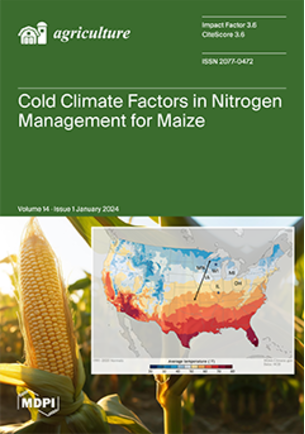An Investigation and Invasiveness Analysis of Two Species of Giant African Snail in a Coastal City of Southern China
Q2 Agricultural and Biological Sciences
引用次数: 0
Abstract
Investigations and research on the giant African snail (GAS) mainly focus on Achatina fulica. However, in recent years, a more harmful GAS, Achatina immaculata, has been reported. In order to understand the invasive status of A. immaculata in China, we take Shenzhen, a coastal city in Southern China, as an example to carry out an ecological survey on the field populations of the two species of GAS in various districts. We explore the differences in the invasive characteristics of the two species of snails in terms of their dietary intake, cold adaptation and drought resistance. The results indicate that, based on the phylogenetic tree analysis, more than half of the sampled snails exhibit higher similarity to A. immaculata. The number of wild A. immaculata is significantly greater than that of A. fulica, and 70.64% of the 746 GAS are A. immaculata. At the same time, it is also found that the maximum shell length of A. immaculata is 135.83 mm, with an average shell length of 76.00 mm, which is significantly different from the average shell length of A. fulica (56.57 mm, p < 0.01). The food intake assay shows that there is no difference in the food preferences of the two species, but the food demand of A. immaculata is significantly greater than that of A. fulica (2.32 fold, p < 0.01). In the cold adaptation assay, A. immaculata recovers from the cold dormancy state significantly faster than A. fulica (1.92 fold, p < 0.05), and the speed with which A. immaculata enters the dormancy state in the drought environment is significantly slower than that of A. fulica (0.706 fold, p < 0.05). With the characteristics of a large body size, large food intake and strong resistance to cold and drought resistance, A. immaculata has the potential to be dominant in competition with A. fulica in the same ecological niche, and it has become the main invasive species of GAS in Shenzhen.中国南部沿海城市两种非洲大蜗牛的调查与入侵分析
对非洲大蜗牛(GAS)的调查和研究主要集中在 Achatina fulica 上。但近年来,一种危害性更大的非洲大蜗牛--非洲大蜗牛(Achatina immaculata)也有报道。为了了解A. immaculata在中国的入侵状况,我们以华南沿海城市深圳为例,对这两种非洲大蜗牛在各区的野外种群进行了生态调查。我们从食性、寒冷适应性和抗旱性等方面探讨了两种蜗牛入侵特征的差异。结果表明,根据系统发生树分析,一半以上的采样蜗牛与 A. immaculata 表现出较高的相似性。野生 A. immaculata 的数量明显多于 A. fulica,在 746 个 GAS 中,70.64% 为 A. immaculata。同时还发现,A. immaculata 的最大壳长为 135.83 毫米,平均壳长为 76.00 毫米,与 A. fulica 的平均壳长(56.57 毫米,P < 0.01)有显著差异。摄食试验表明,两个物种对食物的喜好没有差异,但A. immaculata对食物的需求量明显高于A. fulica(2.32倍,p < 0.01)。在寒冷适应试验中,金花绣线菊从寒冷休眠状态恢复的速度明显快于富贵竹(1.92 倍,p < 0.05),而金花绣线菊在干旱环境中进入休眠状态的速度明显慢于富贵竹(0.706 倍,p < 0.05)。由于具有体型大、食量大、抗寒性和抗旱性强等特点,金花绣线菊有可能在与福寿螺在同一生态位的竞争中占据优势地位,并已成为深圳地区豚鼠的主要入侵物种。
本文章由计算机程序翻译,如有差异,请以英文原文为准。
求助全文
约1分钟内获得全文
求助全文
来源期刊

Agriculture
Agricultural and Biological Sciences-Horticulture
CiteScore
1.90
自引率
0.00%
发文量
4
审稿时长
11 weeks
期刊介绍:
The Agriculture (Poľnohospodárstvo) is a peer-reviewed international journal that publishes mainly original research papers. The journal examines various aspects of research and is devoted to the publication of papers dealing with the following subjects: plant nutrition, protection, breeding, genetics and biotechnology, quality of plant products, grassland, mountain agriculture and environment, soil science and conservation, mechanization and economics of plant production and other spheres of plant science. Journal is published 4 times per year.
 求助内容:
求助内容: 应助结果提醒方式:
应助结果提醒方式:


